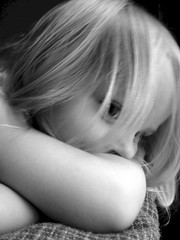Recently, the Journal of Pediatrics published a report investigating the correlation between childhood physical punishment and adult mental health. While it’s widely accepted that severe forms of physical punishment have a detrimental effect on one’s mental health, there remain to be few studies “examining the relationship between physical punishment and a wide range of mental disorders in a nationally represented sample.” This study specifically examined the effects of “harsh physical punishment” in subjects who had not endured severe forms of punishment (i.e., physical abuse, sexual abuse, emotional abuse, physical neglect, emotional neglect, exposure to intimate partner violence) and marks the beginning of more research into this issue.
In the mental health communities, we are painfully familiar with the negative impact of the aforementioned episodes of severe physical punishment and with the fact that physical punishment of any kind continues to be a controversial subject among parents. There always has been a firm line drawn between those who spank and those who don’t. It’s not uncommon to see a raised eyebrow coming from one camp or the other when a child misbehaves, begging the age-old question of whether or not to spank. There’s a lot of judgment on both sides of this issue. The more important question is: Do spanking or harsh physical punishments have a long-term, negative affect on a child’s mental health? And is there a mental-health fallout weaving its way into one’s adulthood?
The study positively concluded that “harsh physical punishment” is connected to mental health issues later in life, even if there is no evidence of persistent abuse or neglect present. Common afflictions include mood disorders, anxiety disorders, substance abuse and/or dependence, and personality disorders.
Frankly, I would love to see a consensus of parents finding better, more loving ways in which to communicate with their children. Spanking might feel productive in the moment, but the emotional mark it leaves is deeper than that fading red mark. There is power in love and compassion, far more than fighting one’s way through life. As an adult who was abused as a child, I can tell you from first-hand experience: my life was negatively impacted, and it did taint my adult life–but not so much so that I will carry the legacy of abuse into my own family. It’s not worth it.
Originally posted on July 12, 2012 @ 6:54 pm






